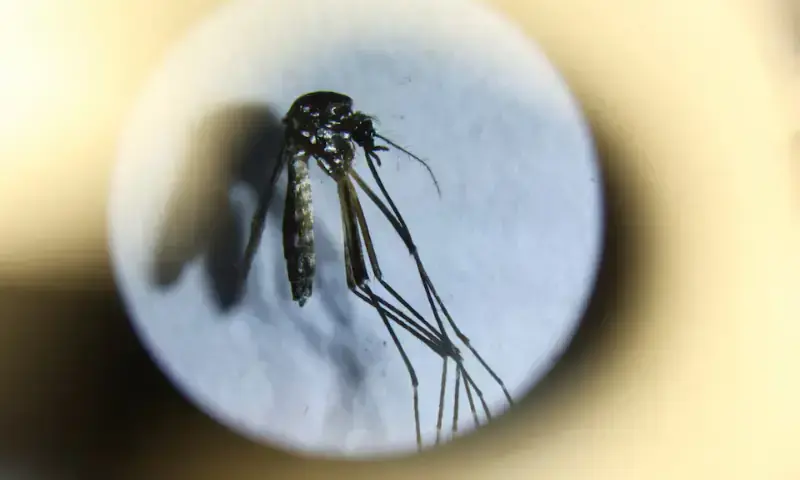PESHAWAR – The spread of dengue fever in Khyber Pakhtunkhwa is taking a worrying turn, with health officials confirming 71 new cases within the last 24 hours.
According to a report from the Directorate General Health Services (DGHS), 27 of the new patients required hospitalization, bringing the total number of individuals currently receiving treatment in hospitals across the province to 48.
The report revealed that 3,582 cases have been laboratory-confirmed in the province so far this year. While 3,314 individuals have recovered, the virus has claimed two lives.
Salahuddin Khan Marwat, the provincial medical entomologist for the Dengue Control Program, directly linked the outbreak’s severity to the impacts of climate change. He explained that the current weather conditions—persistent humidity, monsoon rains, and an ideal temperature range of 18-25 degrees Celsius—are creating a “perfect breeding ground” for mosquitoes.
“This is why we see a spike in cases during October,” Marwat stated, noting that both very high and very low temperatures typically slow the mosquito’s breeding cycle.
Marwat expressed deep concern that global warming, coupled with increased human travel, has allowed the disease to expand its footprint into new territories. “In the past, dengue was limited to districts like Peshawar, Mardan, Swabi, and Haripur. But now, cases have even been reported in Chitral.”
While the provincial government has prepared for a potential epidemic by allocating fifteen to sixteen hundred beds and distributing 400,000 test kits, Marwat issued a stark warning against the indiscriminate use of insecticide sprays.
“Such sprays can kill beneficial insects like bees, butterflies, and fireflies, and can lead to resistance,” he stressed. “The global preference is for environmental cleaning and preventing mosquito breeding, not just spraying.”
He identified public cooperation as the key to controlling the spread. “Peshawar has about 200,000 homes. If each household spends just 20 minutes cleaning water containers and their surroundings, we can clean the entire city in one day.” He admitted, however, that despite awareness campaigns, “community engagement remains the biggest challenge.”



